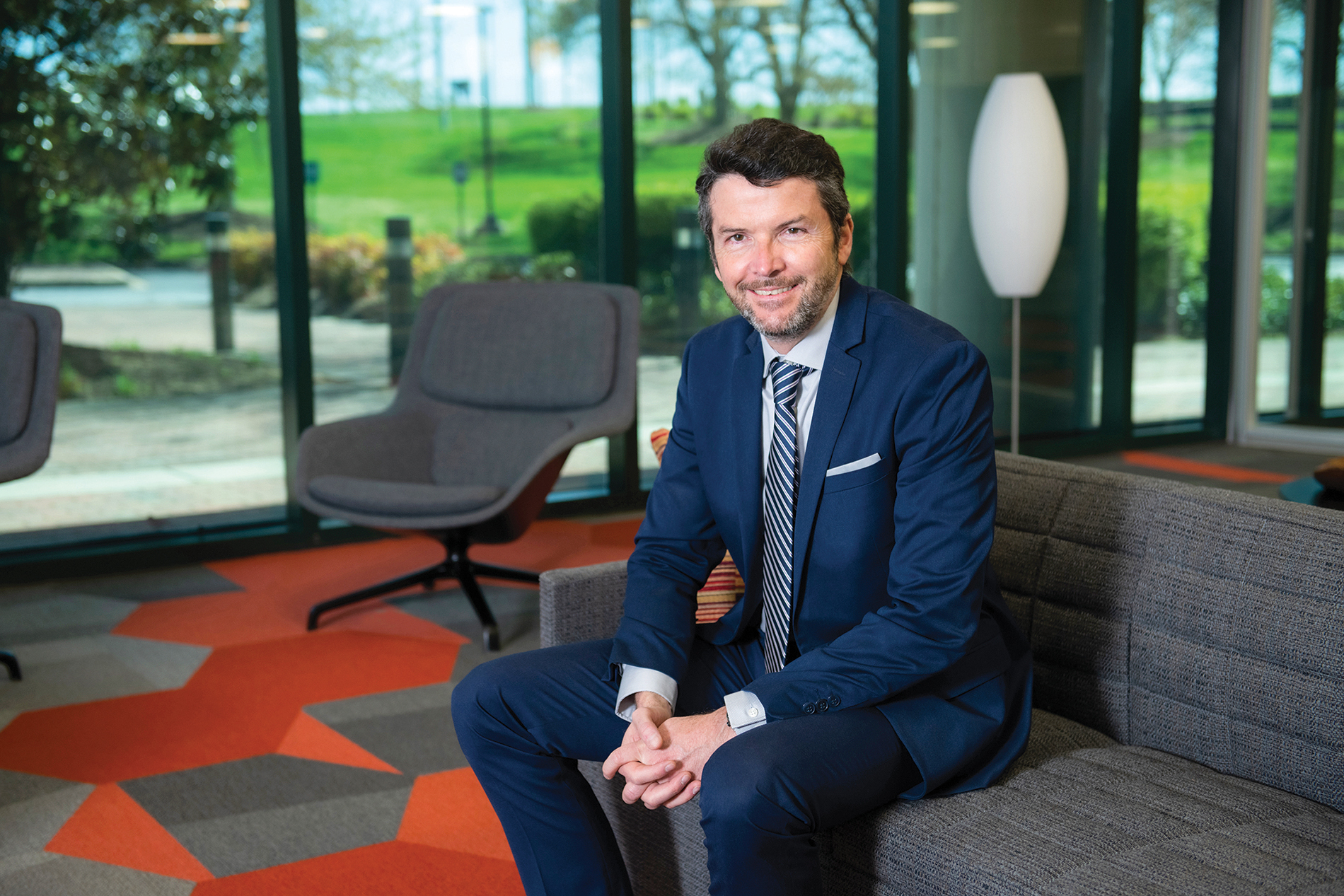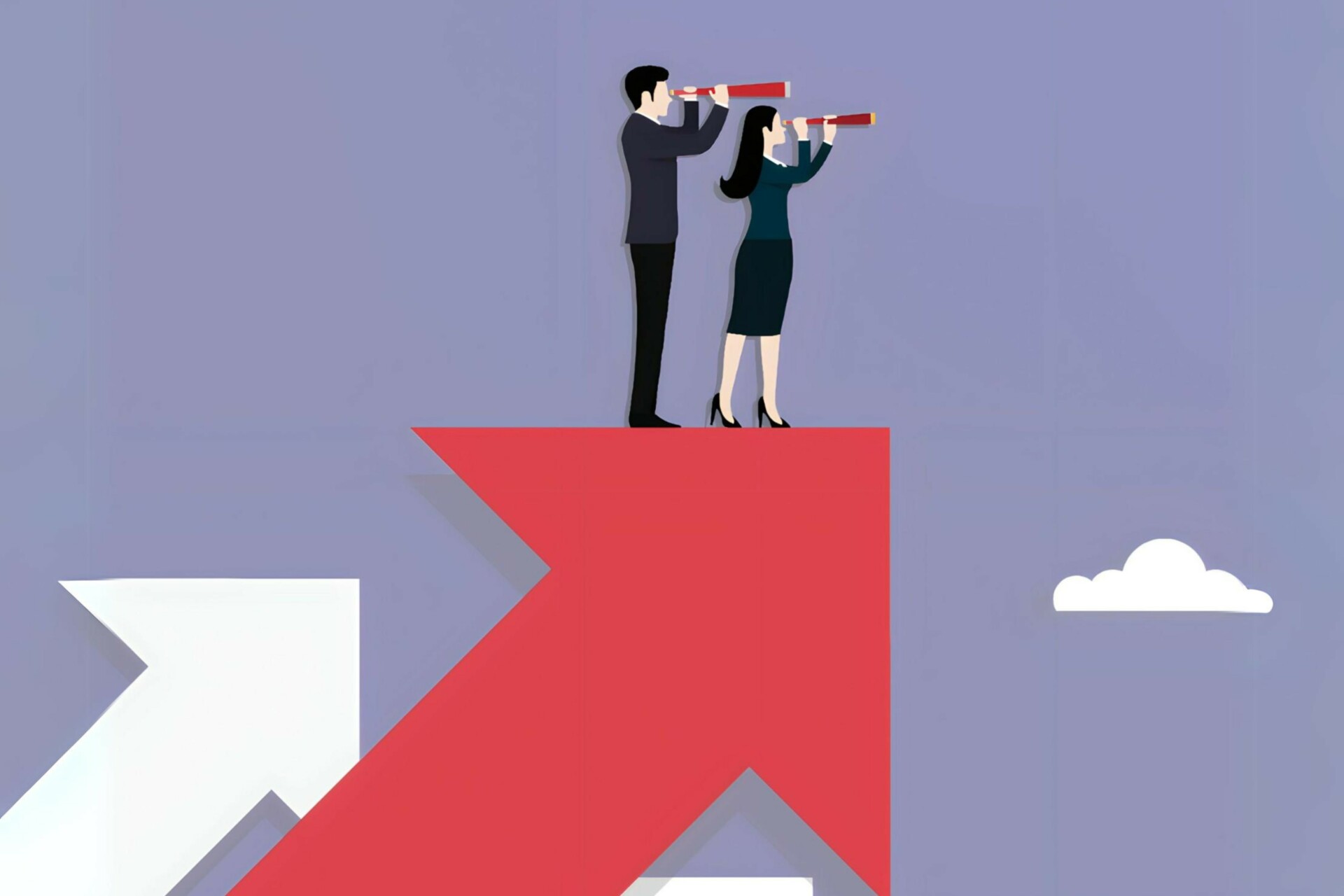Can AI Revolutionize the Art of Being Human?
The meteoric rise of artificial intelligence (AI) and machine learning (ML) in our lives is undeniable and filled with promises of efficiency and convenience. Yet, despite current attitudes about these emergent technologies—which oscillate between advocacy and alarm—a profound and largely unexplored question arises: can AI help us embrace the best of what it means to be human?
The question is predicated on the assumption that AI will ultimately eliminate many of the mundane and unsatisfying aspects of our work as executives, therefore affording us the time, space, and freedom to invent wholly new futures for our careers, our enterprises, and possibly, humanity itself.
Yet, this also represents the current paradox presented by AI; although it can churn out data and perform tasks with lightning speed, it presently lacks the ability to give our lives greater depth and meaning, such as the ability to inspire, lead, and emotionally resonate with human beings. To illustrate, let’s use recent advancements in AI-generated artworks as an example.
While art has long been heralded as a unique byproduct of the human experience, many AI-generated works appear to rival those created by humans.
In a 2023 study entitled, Humans Versus AI: Whether and Why We Prefer Human-Created
Compared to AI-created Artwork, Duke University researchers Lucas Bellaiche and Rohin Shahi, along with Martin Turpin from the University of Waterloo, examined preferences between human and AI-generated art. The team conducted studies where participants evaluated paintings labeled as either “human-created” or “AI-created.”
Artworks labeled as “human-created” consistently received more positive evaluations across various criteria such as liking, beauty, profundity, and worth compared to those labeled as “AI-created.” Factors such as the perceived effort behind the artworks moderated these label effects, influencing sensory-level judgments such as beauty. Furthermore, participants with positive attitudes toward AI tended to mitigate bias against AI-created artworks, particularly in more communicative judgments like profundity and worth.
Overall, the researcher’s findings show the knowledge of human involvement in the artistic process positively influences the appraisal of art, emphasizing the importance of human engagement and creativity in the creation and appreciation of artworks.
Now, replace the notion of “art” with “leadership” and apply this same calculus to the business realm. We know that empathy and the ability to understand human motivations and behaviors are key aspects of effective leadership—something that, as of today, AI cannot fully understand or catalyze.
Yet, if we reframe our thinking and approach AI not as a replacement for the human factor, but rather, as a conduit to a future where undesirable aspects of our professional lives are siphoned away, leaving space to focus on that which truly motivates us—and provide us with an opportunity to engage in more impactful, consequential work.
What AI Can and Can’t Do
Predictions regarding what AI could someday help our species achieve must first be grounded in what AI can do today.
One of the key capabilities of AI lies in its ability to process and analyze large volumes of data at incredible speeds. Unlike humans, AI systems can sift through massive datasets in a fraction of the time, extracting valuable insights and patterns that might otherwise go unnoticed. This proficiency in data analysis allows businesses to make more informed decisions based on data-driven insights, which might include automating administrative tasks or managing inventory levels.
“One of the greatest use cases for AI is its ability to eliminate mundane tasks that machines can handle with much greater efficiency and at faster rates,” says Steve Steinberg, co-founder of Responsum—a large language model and generative AI acceleration platform that enables employees to prioritize tasks, eliminate repetitive work, streamline workflows and scale manual processes. Additionally, Mr. Steinberg is a partner at global consulting firm Elixirr, where he supports clients seeking strategic AI guidance and bespoke generative AI solutions to drive massive growth and transformation.

“Many people worry that AI will eliminate or replace their jobs,” says Mr. Steinberg. “I’m a believer that roles will be elevated, and our work will be augmented with artificial intelligence, rather than replaced. By eliminating the repetitive work that many people find unappealing and draining, AI can help refocus our energy and attention on that which inspires us as humans—and therefore—aid us in unlocking the best of what it means to be a human being.”
However, it’s essential to recognize that AI also has its limitations. While AI excels in tasks that are rule-based and data-driven, it lacks the nuanced understanding and adaptability of human intelligence.
Since AI systems operate within predefined parameters and algorithms, they may struggle when confronted with ambiguity, incomplete or contradictory information, and complex decision-making tasks that require contextual understanding.
Essentially this means that AI is only as effective as the data it is trained on, which in turn, leads to concerns regarding biases in data or limitations in the training dataset, which can lead to skewed results or flawed decision-making by AI systems.
“One of the most debated and contested topics around AI is data bias,” says Mr. Steinberg. “There are several different areas where it comes into play, such as relying on data from the past to predict the future—which will automatically inherit existing biases, thereby compromising the quality of its predictions. For those working in this field, it is imperative to identify and remove those biases from the data if we seek to leverage AI to help provide solutions to the problems people are trying to solve.”
AI: Champion of the Human Condition?
In his seminal 1974 book, Working: People Talk About What They Do All Day and How They Feel About What They Do, author Studs Terkel wrote, “I think most of us are looking for a calling, not a job…most of us have jobs that are too small for our spirit. Jobs are not big enough for people.”
Mr. Terkel’s words perfectly encapsulate what is potentially AI’s most impactful use case: By freeing enterprises from the drudgery of repetitive tasks, it creates an opportunity for humans to redefine their roles and careers in alignment with their passions and strengths.
Such a scenario would create space for people, teams, and enterprises to leverage their newfound time and energy to pursue projects that inspire them, invest in the mentorship of team members, or engage in strategic planning initiatives that shape the future of their organizations.
Capturing this sentiment in The New York Times column, David Brooks writes, “The most important thing about AI may be that it shows us what it can’t do, and so reveals who we are and what we have to offer.”
This also means that AI has the potential to enhance collaboration and creativity within teams by enabling employees to focus on collaborative problem-solving and idea generation, fostering a culture of innovation and continuous improvement.
In a piece entitled, How AI Is Helping Companies Break Silos, published in the MIT Sloan Business Review, authors Zoran Latinovic and Sharmila C. Chatterjee argue that, when adopted appropriately, AI-enabled tools can “transform how employees communicate, collaborate, and coordinate their workflows.” The result, say the authors, is greater efficiency, more synchronization, and reduced tunnel vision within an enterprise.
“Companies that are in business together often don’t have full information or a clear picture of their partnership,” note the authors. “This can sometimes trigger an ‘us versus them’ mentality among colleagues and collaborators. As a result, opportunities are missed and problems don’t get solved.”
Reimagining career roles and responsibilities is a conversation executives should be engaging in now, says Dinika Mahtani, principal at Cherry Ventures—a seed-stage venture fund that champions founders in Europe—in a Forbes article entitled, How AI Is Changing The Future Of Work.
“Generative AI will accelerate personalized and applied learning both inside and outside of the workplace,” she says. “As courses and books become quickly outdated, so will linear career pathways, giving way to a surge in both machine-driven and peer-to-peer learning, similar to how YouTube, Instagram, and TikTok leveraged the rise of smartphones and allowed people to share their lives through stories, we think that learning and upskilling will evolve as a result of GenAI.”
Additionally, there’s potential for AI to rebuild and redefine traditional sectors—creating job roles that largely do not presently exist, says Forbes Council Member Marco Iacoviello in his op-ed, How Does Artificial Intelligence Create New Jobs?
“For example, in the healthcare sector, AI can enhance medical diagnosis, expedite drug discovery and support telemedicine,” says Mr. Iacoviello. “This paves the way for professional profiles like ‘health data analysts’ who interpret and analyze data collected by AI systems to provide more precise and personalized diagnoses.”
Lastly, beyond inventing new career pathways and reinventing current roles, AI has the capacity to prompt societal introspection, challenging us to navigate global interconnectedness with improved cooperation, address systemic biases, and reimagine governance and economic paradigms. While utopian ideals remain elusive given inherent human complexities, AI serves as a catalyst for profound societal introspection and potential transformation.
In the thesis AI For Social Good published by Keio University—a private research university located in Tokyo, Japan—researcher Soraj Hongladarom believes that the ethical development of artificial intelligence (AI) can be leveraged to promote social good, drawing on Buddhist principles of compassion.
Mr. Hongladarom argues that ethical AI must exhibit qualities of compassion, such as recognizing interdependence and striving to alleviate suffering. While machines may not possess consciousness, the paper contends that ethical considerations should be integrated into AI programming from the outset. Addressing objections, it clarifies that coding ethics into AI does not solely reflect the programmer’s values and emphasizes the importance of considering socio-cultural contexts.
Creating a New Paradigm for AI
For Elixirr partner John Kalil, helping clients contextualize and envision a new paradigm for AI to elevate our innately human capacity for transformational leadership, proper integration is foundational to both the success of their enterprise and the well-being of people within these organizations.

“In my approach, I prioritize practicality when considering implementing AI and automation into our client’s business processes,” says Mr. Kalil. “There are numerous instances within an organization where I can identify areas that, with just a bit of assistance, could yield significant value. Yet, I adhere to the mantra of ‘think big, start small, and scale fast,’ recognizing the importance of incremental progress.”
One key area where Mr. Kalil advocates a paradigm shift is rethinking our collective approach to enterprise software, which, prior to the AI revolution, had been the standard means of streamlining business processes, improving efficiency, and enhancing productivity.
“As businesses grow, they need tools to manage their growth, often in the form of rules-based software,” he says. “If we look at the tools and capabilities that businesses have traditionally relied on versus what’s now emerging in the market, we are seeing AI overtaking enterprise software because traditional rules-based software models are no longer enough to handle the complexities of today’s markets—and they do little to create space for us to reinvent and elevate the work we do as humans.”
For example, Mr. Kalil says, “Traditional software struggles to adapt to complexity. When we consider innovative approaches for enterprises, we must adjust our focus in a few key areas. First, we must identify areas where customers or objectives face the most uncertainty and volatility. Second, it is critical to analyze data diversity and quality in order to make informed decisions. Lastly, we must pinpoint processes where scaling up means adding more people, such as demand planning or customer service. By leveraging automation, AI, and machine learning, businesses have an opportunity to achieve more with the same resources. It’s a great starting point for any enterprise looking to optimize their operations.”
Once optimized in an enterprise, the potential for AI to help humans connect to their humanity spans multiple industries and sectors, says Insigniam consultant J.W. Dobbe, who monitors AI trends and impacts for clients across several verticals.
“The narrative surrounding AI is crucial; how we describe, view, and implement AI shapes its impact, especially on us as human beings,” says Mr. Dobbe. “If we prioritize people over technology, setting ethical parameters, and placing guardrails on human actions rather than machines, we can ensure that AI serves as a tool to enhance human potential and foster deeper connections, empathy, and understanding among individuals in ways that enrich our lives and contribute to a more humane and inclusive society.”
On the topic of enriching lives, one area of potential impact is in healthcare, where AI is expected to revolutionize diagnostic accuracy [click here to learn how Medtronic is utilizing AI-enabled devices to unlock previously unattainable patient outcomes] as well as personalized treatment plans and drug discovery. According to a recent report, AI applications in healthcare could potentially save the industry $150 billion (USD) annually in the U.S. alone by 2026.
Additionally, AI has the potential to transform the educational sector by personalizing learning experiences, providing adaptive tutoring, and automating time-consuming administrative tasks for educators.
Likewise, the transportation industry is leveraging AI-driven advancements in autonomous vehicles to reduce traffic congestion, create safer roads, and increase accessibility options for people with disabilities.
Lastly, AI technologies could also help solve one of mankind’s greatest 21st-century challenges: accelerating climate change and the looming potential for global climate collapse. By addressing environmental challenges, optimizing energy consumption, predicting natural disasters, and monitoring wildlife conservation efforts, AI-powered climate models could improve the accuracy of climate change predictions and inform policy decisions.
“Outside of the workplace, I’m excited by the potential offered by AI, and I believe it will have a profound impact on our collective society,” says Mr. Steinberg. “As we look down the road into the next decade, a combination of factors will ultimately influence how we live our lives, potentially alleviating current stresses and allowing for a more balanced lifestyle.”



